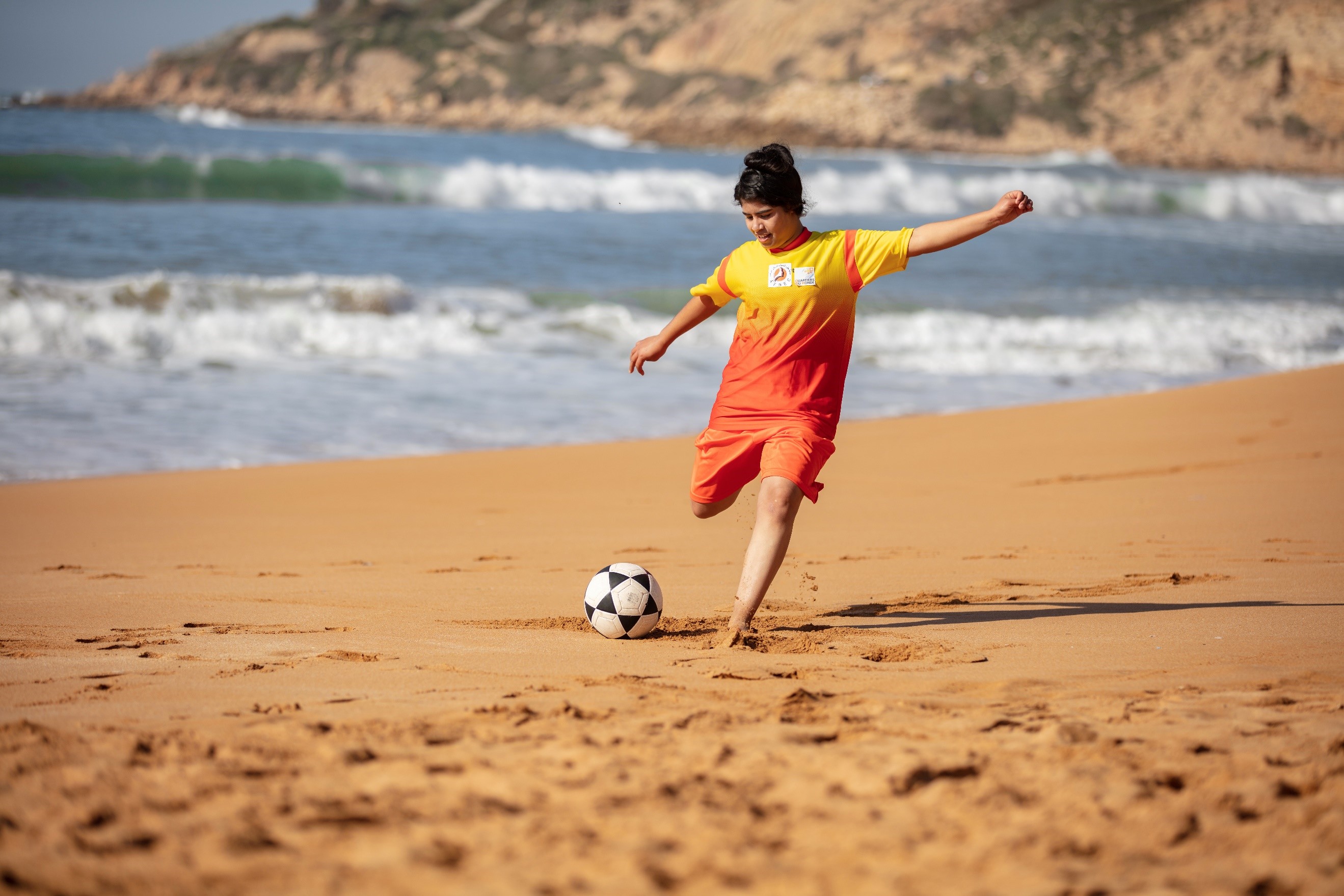Empowering Women and Girls to End Violence against Women in Central Morocco
Date:

A small group of women and men in Youssoufia, a region in central Morocco, is working hard to end violence against women and the gender norms that victimize women and girls.
Hanane Satour is a native of Youssoufia, and a co-founder of the Kholoud Association for Development, Education and Communication (“Kholoud Association”), which works in cooperation with the UN Women Men and Women for Gender Equality regional programme. Hanane strives to break down the gender barriers embodied in the violent acts and aggression perpetrated against women and girls that hinder them from realizing their right to education.
Hanane stated that the Kholoud Association works to specifically address violence against women through their counseling and referral center in Youssoufia. The center is funded by the Ministry of Solidarity, Women, Family and Social Development and supports survivors of intimate partner violence (IPV).
“A lot of women from the villages around Youssoufia come into our center because of violence from their husbands. Usually this violence begins due to economic desperation or drug use. But also, in the villages when a woman is married, she goes to her husband’s home, where relatives can treat her violently,” Hanane said.
She told the story of one recent victim of IPV. “Her husband had been hitting her, even when she was pregnant. She left to her parents’ house and gave birth, but was too poor to feed the child, and had to move back in with her husband for financial support. In the end, her brother encouraged her to leave and introduced her to us.”
The Kholoud Association provides services to women who have experienced violence. “We work in partnership with a female psychologist and also a lawyer. The psychologist consults the women on traumas they’ve incurred. The lawyer offers legal counsel for women looking to take their assailants to court,” Hanane said.
With regards to the case she mentioned above, Hanane added, “we referred her to a court, which ordered that her husband pay child support. The Kholoud Association’s psychologist helped her to recover her psychological and emotional strength.” She recalled the woman telling her later that if she had finished her studies and had found a job, she would have been independent, and would not have been exposed to her husband’s violence.
Hanane stressed the importance of education to keep women empowered and safe. Highlighting the Kholoud Association’s efforts to fight illiteracy among women and girls in the area, she said, “so often the women coming into our office suffering from violence at home are illiterate and they don’t know their legal rights. So, we provide free legal advice, and hold forums in villages around Youssoufia to inform women of their legal rights.”
The Kholoud Association is not only defying IPV in the community but also pushing back against gender norms in sports, especially football which is widely popular in Morocco. To promote women and girls’ participation in sports as part of a healthy lifestyle and to boost their self-confidence, the Kholoud Association in partnership with UN Women provides training to Najmat Al Youssoufia Women’s Football Club.
“I chose to help girls get involved in football because only boys played football in our area,” Hanane said. “At the Association, girls who wanted to play football were flocking to us, so we decided to help them in order to change this misperception that only boys can play.”
The Kholoud Association also operates a kindergarten with around 50 children from families who otherwise would not be able to afford an education. Most of the students are between three and six years old, and the majority of them are girls.
“Our school aims to provide the opportunity for a basic education to girls at risk of illiteracy. They are taught how to read and write and then they develop these skills further,” Hanane added.
Very importantly, the Kholoud Association brings both men and women together to work for gender equality. Hanane gave an example of a man from the area, who was resisting his wife’s right to access their children. Following the intervention and mediation by the Kholoud Association, the man became a supporter of their work and now attends all the Association’s public meetings and gender sensitization trainings. His new-found commitment is yet another example of how education is the key to address violence against women.